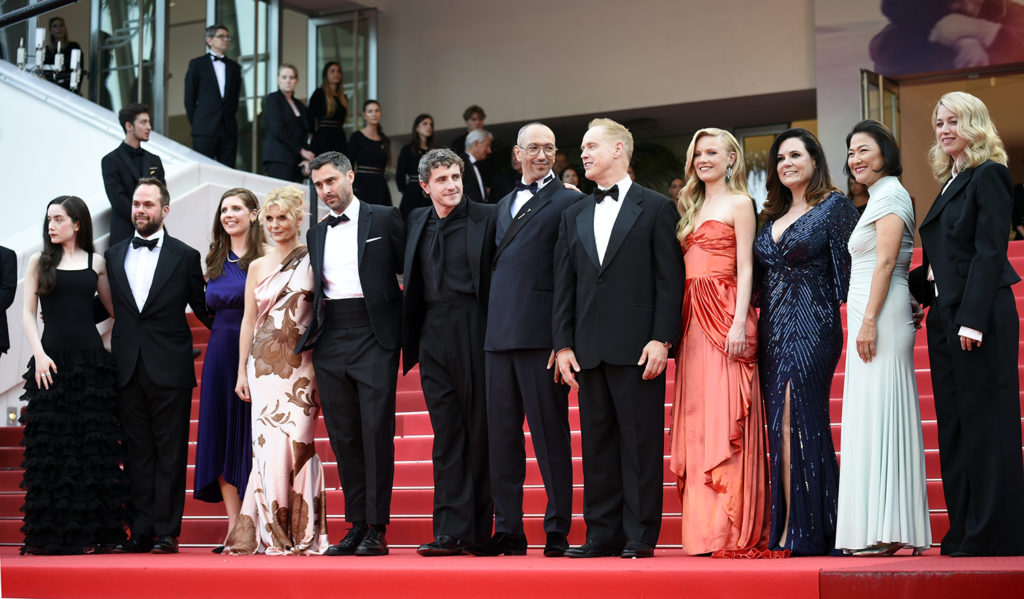
The History of Sound team ©YesICannes.com
The Cannes Film Festival 2025 presented Romeria by Carla Simón, The History of Sound by Oliver Hermanus and Sentimental Value by Joachim Trier.
The History of Sound: the festival enters the final stretch towards the awards with the screening of Romeria, Spanish director Carla Simón‘s third feature film (in Catalan) after Summer 1993 and Our Suns. The History of Sound by South African filmmaker Oliver Hermanus is the story of a deep relationship between two men set against a backdrop of a love for singing. Sentimental Value (Affeksjonsverdi) is a Norwegian-French-Danish-German dramedy co-written and directed by Joachim Trier, who finds the actress from Julie (in 12 chapters), Renate Reinsve – winner of the Best Actress award in 2021 – and welcomes Stellan Skarsgård and Elle Fanning into his universe.
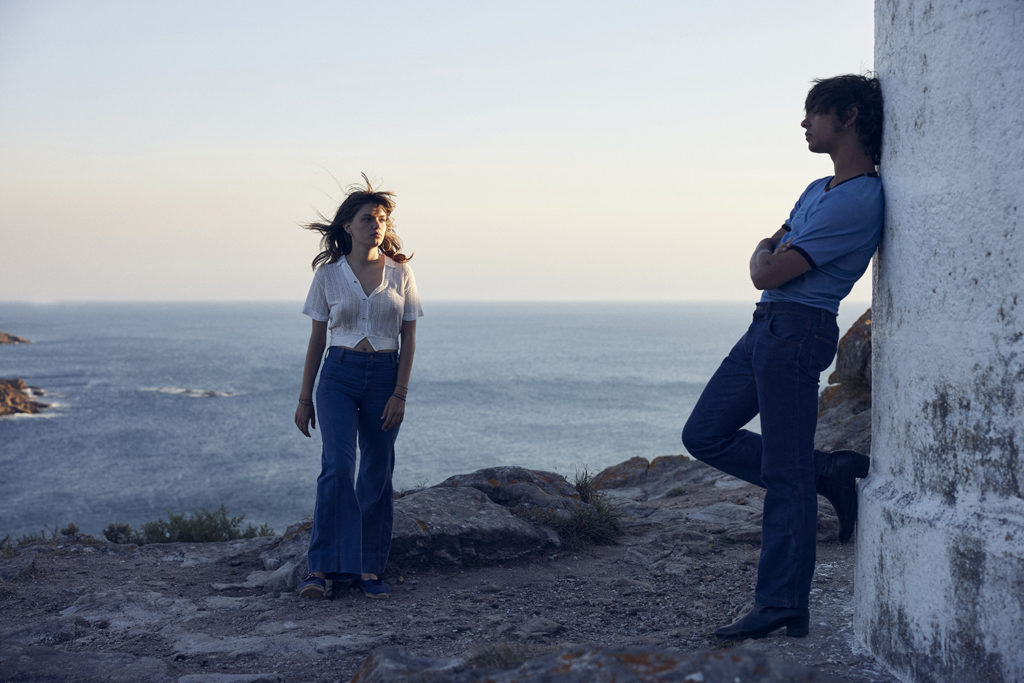
Romeria ©QuimVives_Elastica Films
Romería, an ode to memory and family roots
Romería follows Marina (Llúcia Garcia), adopted since childhood, who travels to the Galician city of Vigo to meet part of her real family, her biological father’s side, in order to obtain a civil status document for her higher education. Like her mother, he died of AIDS when she was very young. Guided by her mother’s diary, which she had carefully kept, she goes to the Atlantic coast and meets her uncles, aunts, and grandparents. Marina tries to piece together a coherent story of her father and the love story he lived with her mother. But it’s difficult: Marina’s arrival will bring the past back to life… They are all too ashamed of the couple’s drug problems, which Marina brings back to their minds. But the teenage love story she experiences with her cousin Mitch (Nuno) allows her to reimagine her parents and get closer to them. Marina will discover the secrets of this family and invents a story that frees her from her family’s stigma and satisfies her desire to understand the past.
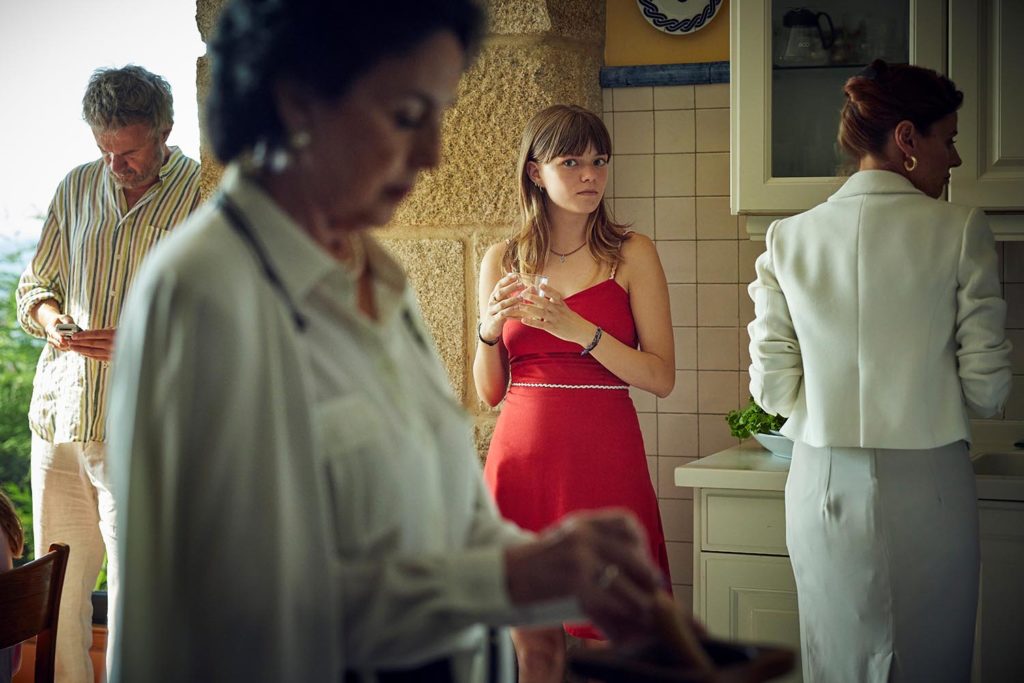
©QuimVives_Elastica Films
Poetry of daily life
The film revolves around an annual tradition, the “romeria” (pilgrimage or votive festival), which becomes the thread that weaves an intimate exploration of generational ties and memories that shape identity. Through Marina’s eyes, Carla Simón observes family dynamics, unspoken truths, and enduring rituals. Carla Simón’s direction is marked by great finesse and disarming authenticity. She films her characters with infinite tenderness, capturing everyday gestures, fleeting expressions, and moments of complicity. The director manages to find poetry in the everyday, in the repeated gestures, in the familiar landscapes, and in the shared visions. The film is an ode to collective and individual memory, and to the way it anchors us in the world.
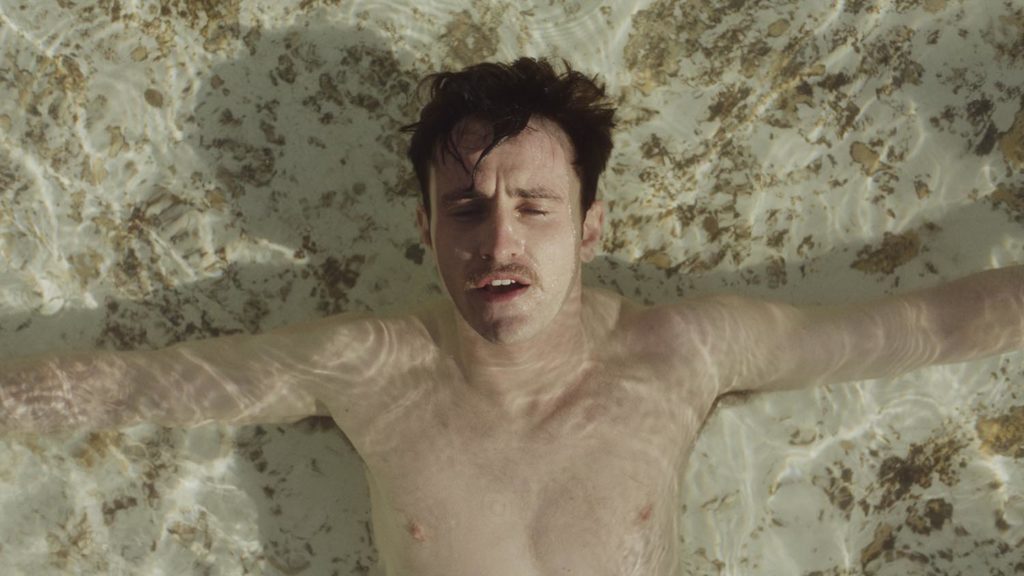
The History of Sound ©Fair Winter LLC
The History of Sound, the love of singing
In The History of Sound, Oliver Hermanus tells the love story between Lionel (Paul Mescal) and David (Josh O’Connor) who meet during World War I at the Boston Conservatory. Originally from Kentucky, Lionel is a talented singer but, just out of the family farm, remains an introverted student, while David is a composition student from a good family, as brilliant as he is charming. Their budding love is interrupted when David is drafted at the end of the war, but in 1920, they are reunited for a winter. Lionel and David then traverse the forests and islands of Maine, covering dozens of kilometers on foot to collect and preserve the folk songs threatened with oblivion. Later on, Lionel experiences recognition, success, and other love stories throughout his travels across Europe, but he has never forgotten that relationship which still resonates within him.

Paul Mescal ©YesICannes.com
Heritage and power of sounds
The South African filmmaker, acclaimed for his ability to explore the complexity of human relationships and the unsaid through intimate and visually sumptuous narratives (Living, Moffie), delivers here a work of rare delicacy and depth, a meditation on memory, legacy, and the ephemeral beauty of sound. The shared quest to capture the voices and sounds of the daily lives of ordinary people becomes the pretext for a poignant exploration of the lives they encounter and the bonds that form between them. Hermanus films with meticulous attention to detail, transforming each scene into a pictorial composition. The light is used masterfully, highlighting the textures, faces, and landscapes with a melancholic softness. The deliberately slow pace invites the viewer to fully immerse themselves in the film’s auditory and visual universe, to listen to the silences, and to feel the emotions that emerge from the interactions. The History of Sound is an invitation to listen, not only to the sounds recorded by the characters but also to the inner voices, the hearts that reveal themselves, and the souls that meet.

Sentimental Value ©Kasper Tuxen
Sentimental Value, the invisible ties of our lives
Joachim Trier’s return to the official competition at the 78th Cannes Film Festival with Sentimental Value (original title: Affeksjonsverdi) was one of the highlights of this edition. The Norwegian filmmaker is known for his ability to dissect the torments of modern youth and the complexities of human relationships with rare intelligence and sensitivity. After Julie (in 12 chapters), Oslo, August 31st, The Worst Person in the World, Joachim Trier, Norwegian master of introspective and emotionally rich narratives, delivers here a deeply moving work about what binds us to objects, places, and, above all, people. This film, although shorter and more experimental than his previous works, retains Trier’s trademark: a keen sensitivity to details and a deep exploration of relationships and memories.
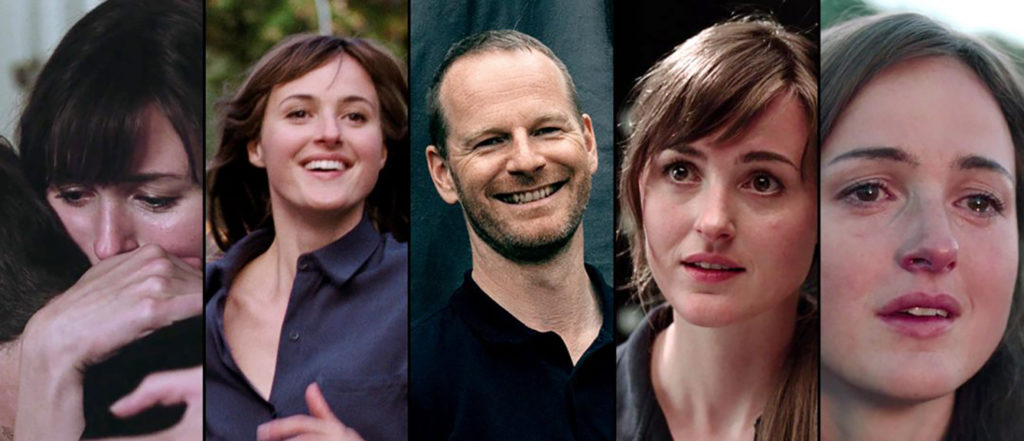
©DR
The anchors of our lives
Former renowned filmmaker, who hasn’t directed in over ten years, Gustav (Stellan Skarsgård) has always prioritized his art over his family. But the years have piled up and invited him to a family reconciliation: while his daughters are considering selling the family house, he announces to them that he wants to shoot his next film there. He offers Nora, (Renate Reinsve) a theater actress, a role in his next film, but she defiantly refuses. He then offers her role to a young Hollywood star (Elle Fanning), rekindling the embers of painful family memories. The start of filming in Norway then becomes an opportunity for Gustav to mend his family relationships. The screenplay, co-written by Trier and Eskil Vogt, is of rare psychological finesse. The strikingly accurate dialogues reflect the complexity of human thoughts and feelings. Affeksjonsverdi excels at showing how small things, insignificant objects, and shared memories can take on immense value and become the anchors of our existences.
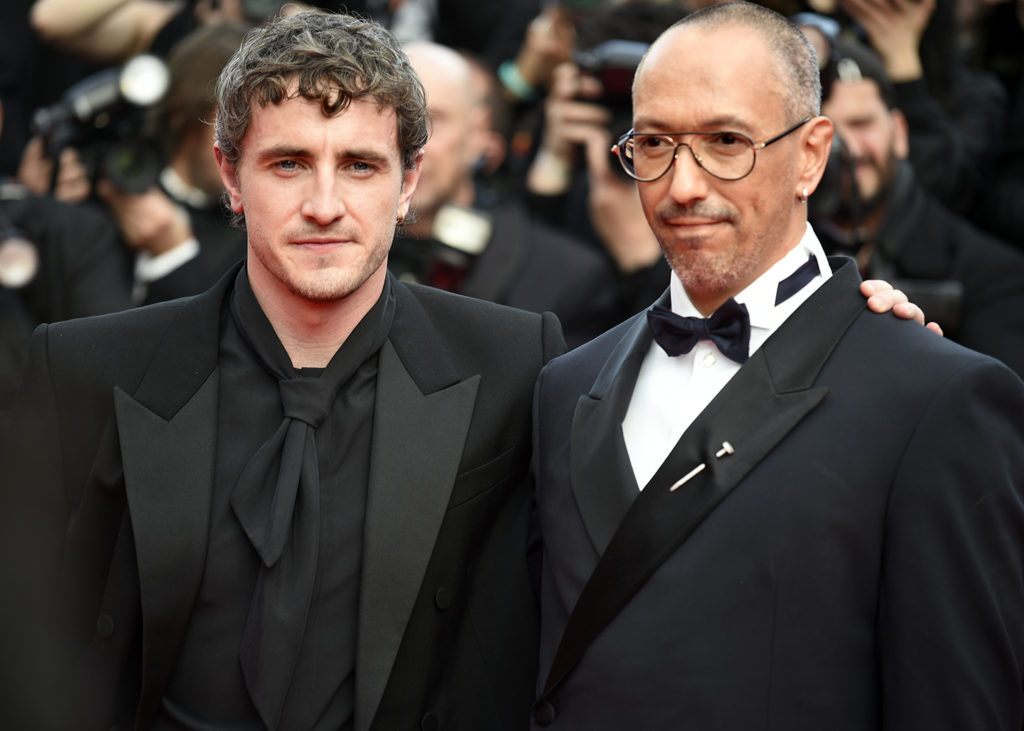
Paul Mescal & Oliver Hermanus ©YesICannes.com

Carla Delevingne ©YesICannes.com

©YesICannes.com

Adriana Karembeu ©YesICannes.com

©YesICannes.com
The Red Carpet of The History of Sound
Click on pictures to enlarge – ©YesICannes.com – All rights reserved

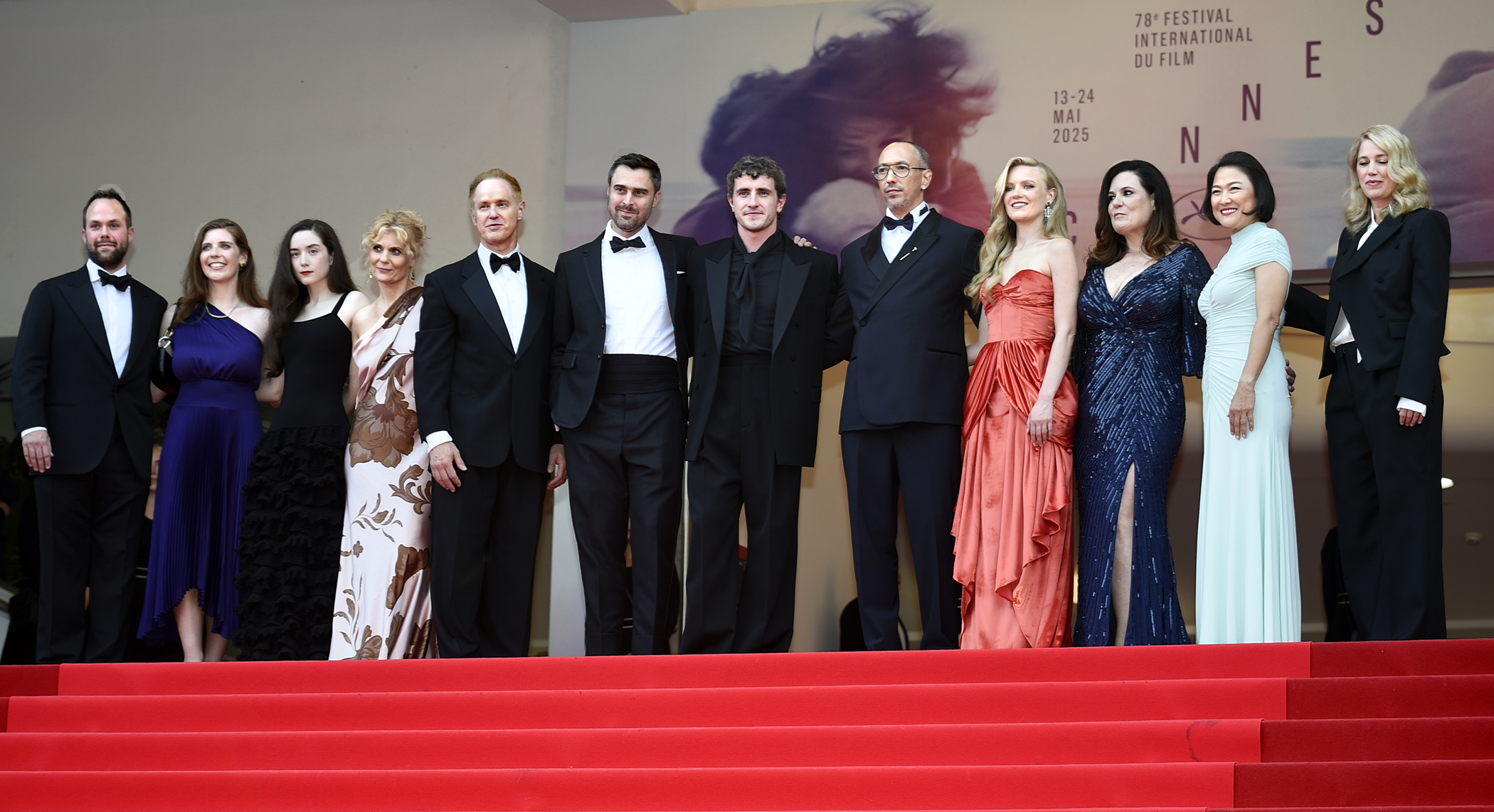
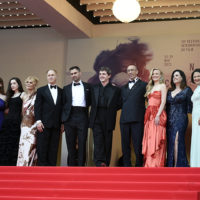





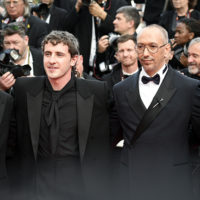



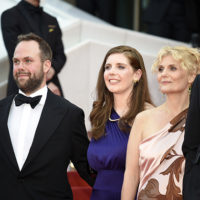


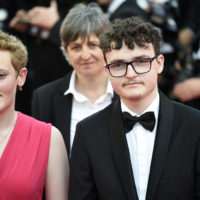




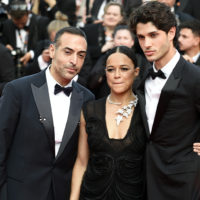


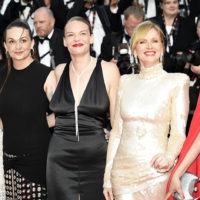




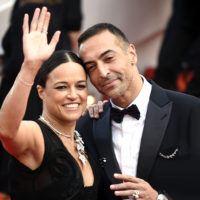
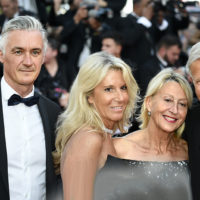






































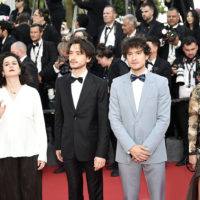
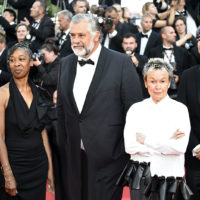

















































Recent Comments